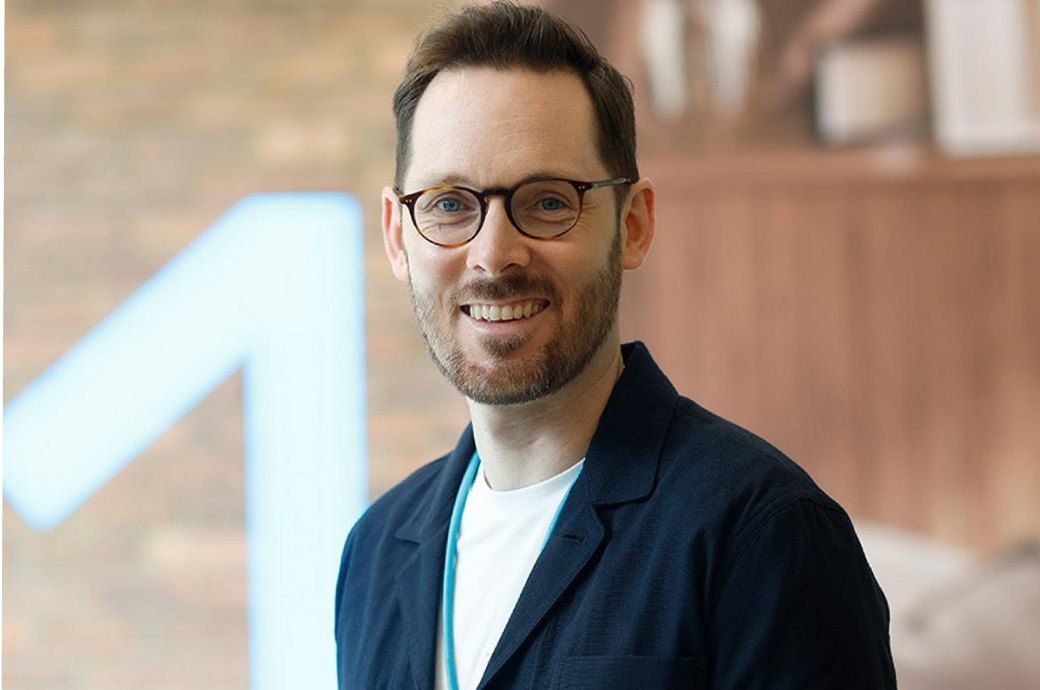“So I have Crouzon Syndrome, which is a condition where the bones in the head fuse prematurely,” Henley said. “So from the time I was 8 months old, I had surgery after surgery basically expanding my skull and the bones in my face, and just moving everything around.”
The syndrome led to problems with her ear canal, resulting in frequent ear infections when she would get water in her ears. “And so I’m almost 31 now, so 31 years almost of chronic ear infections has led to a lot of hearing loss,” Henley said.
As a child, Henley’s hearing aids were covered through her mother’s company health insurance, but when she needed them again in college, she learned the cost would add up to thousands of dollars just for the initial tests alone. “I was like, ‘How is this not covered,’ right?” Henley asked. She learned that hearing aids are considered elective. Not being able to afford the devices out of pocket in college, she had to rely on a notetaker to understand what was being discussed in class.
Henley attended the University of Vermont, which has an in-state tuition cost of $16,280 and an out-of-state cost of $41,280. “To know that I’m paying to go to college and sit in a classroom, and now I’m going to have to go home and review all of these notes that someone else took because I don’t have any idea what someone is saying, that doesn’t feel like it should be okay,” Henley said.
Even after college, she’s had to rely on lipreading and similar techniques for years, leading to many awkward moments, some of which Henley detailed in a Slate magazine article.
“Does my dress look ugly on me, Bella?” her older sister asked in one such example.
Henley penned:
We were in Manhattan for her final wedding dress fitting.
I smiled big and nodded. “Yes,” I said. “It’s so perfect for you.”
I realized I’d misheard her question when her shoulders fell and she put her hands over her face to hide her tears. “You’re supposed to lie to me, Bella,” she said. “You’re supposed to say I look beautiful.”
“I’m so sorry,” I told her. “You look gorgeous … stunning. Honest!”
Henley told Daily Kos that in situations like that, not being able to rely on a hearing aid impacts more than just her ability to hear and communicate. “It impacts my relationships,” she said. “It impacts the opportunities that I’m able to get because if I’m not properly understanding what someone is saying and I have no way to interact with people in a way that works for me, where does that leave me?”
Henley said she’s very grateful for her book deal in 2019 because it came with an advance that enabled her to buy hearing aids, but the bills don’t just stop after purchasing the devices. Users also have to pay for batteries, filters, and checkup appointments. “It’s very expensive to be disabled, and a lot of people don’t realize how expensive it is,” Henley said.
In more ways than one.
Vargas talked about difficulties people with disabilities or mental illnesses have encountered because others decide “you don’t look disabled.”
“Oftentimes people will question your disability and they won’t believe it,” she said. It can have life-changing affects in medicine, a field in which the doctor is presumed to know best. Alternatively, Vargas described a social model of disability in which the person with the disability or illness is the expert because “you know what you need.”
The different models came up in the context of ableist language. I would hope our readers would be able to readily identify the problem in the example that Vargas gave of someone, intending it as a compliment, saying “You don’t look disabled,” or in another example she gave of a person interviewing her asking if she would be “stable enough” to do the job. Other examples of ableist language, however, may not be as easily identifiable. We discussed those too—words like “crazy” and “tone deaf,” and Barbarin explained exactly why they are offensive as tools of white supremacy.
She said:
When something happens that shakes the system […] people try to tie it to disabilities to create the idea that that person is then disposable or should be gotten rid of. We do this with mass shooters. We do this with Republicans, extremists, and it’s the idea behind it that really bothers me the most, which is that simply by tying somebody to a disability means that we can then disregard them. We can discard of them.
Barbarin said we saw that play out early in the COVID-19 pandemic. “People heard that only disabled and elderly people would die, and they said, ‘Oh, psst, well we’ll be fine then, right? We’ll be okay,’” Barbarin said. “But when you think about the fact that Indigenous and Black people have the highest rates of disability, it shifts the entire picture behind that instinct, and so being careful to ask yourself why you’re trying to tie something to disability is really where I want people to start questioning themselves.”
RELATED: Saying goodbye to ableist language is an easy and effective way to become a better ally
RELATED: Internalized ableism is a consequence of an ableist society. Let’s dismantle both
RELATED: ‘Their lives were not seen as vital’: Screenwriter describes people with disabilities left to die
RELATED: Microaggressions: How to recognize them and reduce their frequency and impact (VIDEO)

:max_bytes(150000):strip_icc()/Health-GettyImages-2187328842-0ff87870ab884e108a5b113dc29a37ef.jpg)



